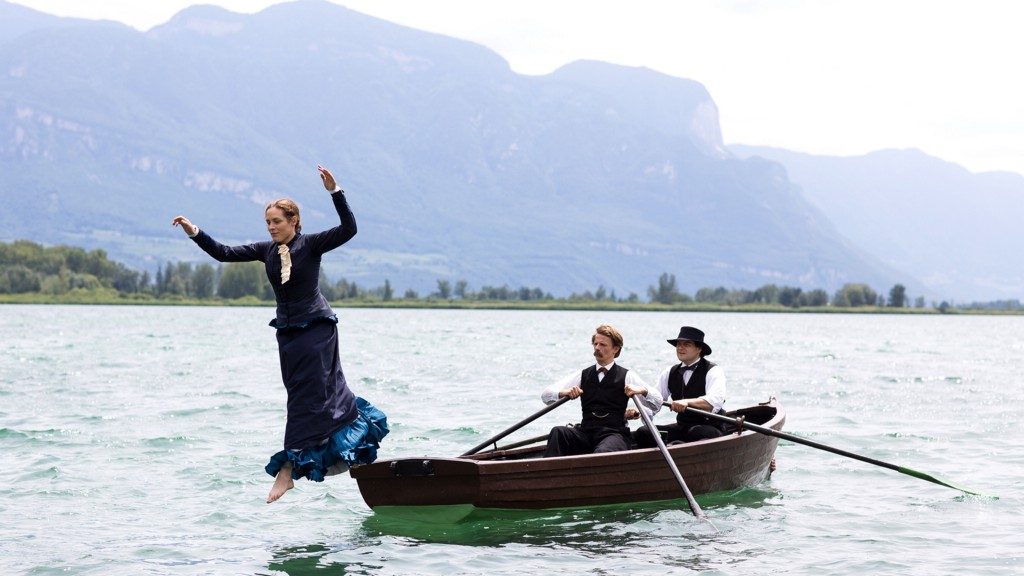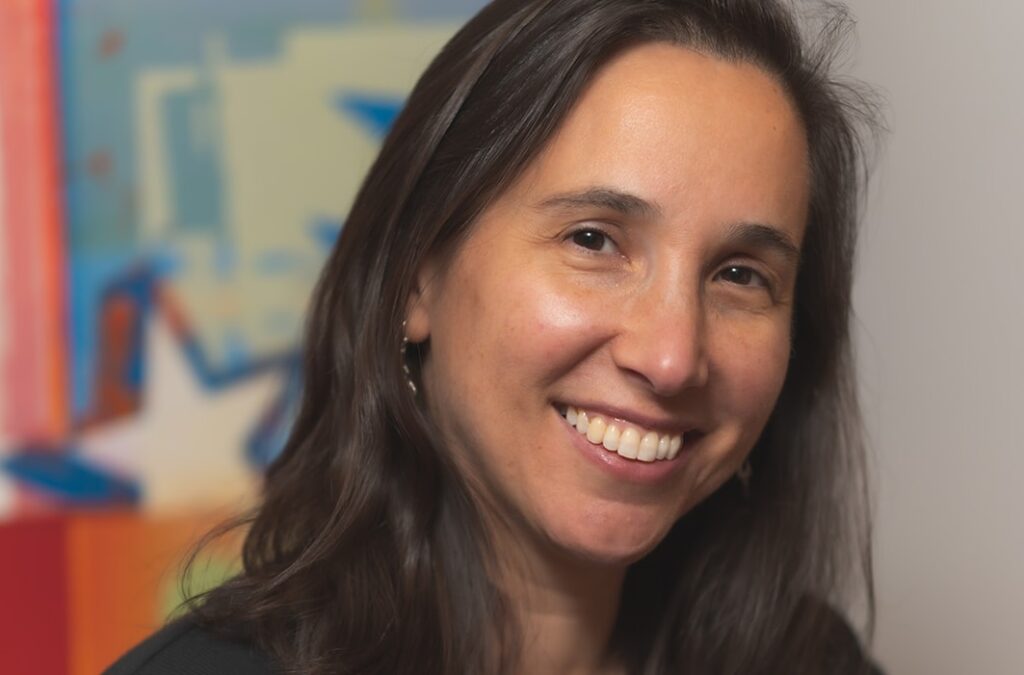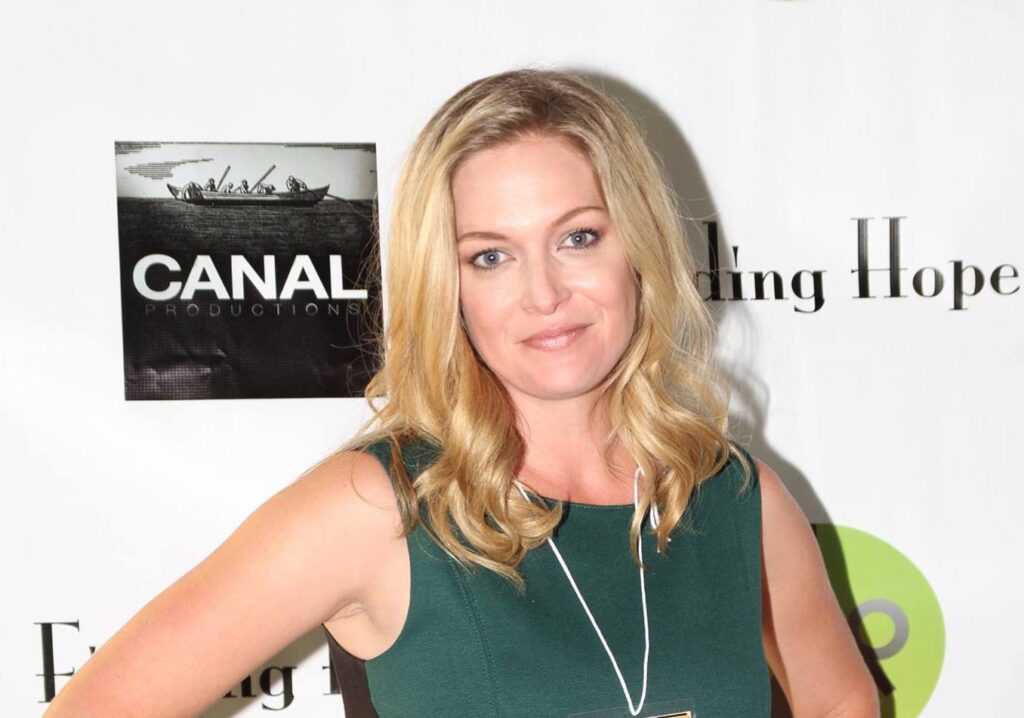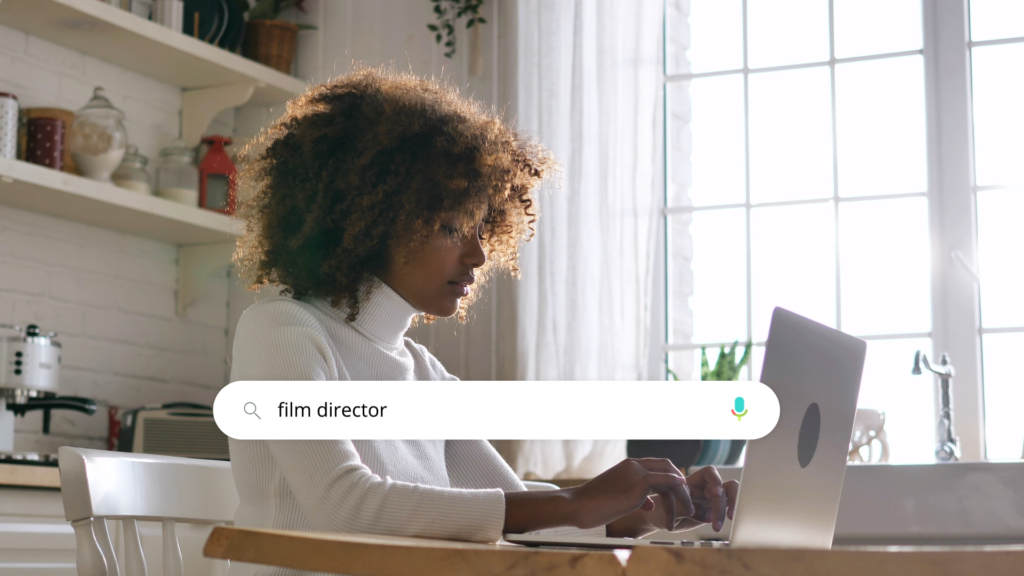Guest Post by Cordula Kablitz-Post
Eight years ago, one year before her 150th birthday, I had the idea of doing a film about legendary German-Russian writer, philosopher, and first female psychoanalyst Lou Andreas-Salomé.
I just checked my emails to find out when I started this project and realized that I actually wrote 2,566 emails about it since February 2010, when I first had the idea to make a film about this extraordinary woman. It shocked me to see how many emails I had sent. This should give you a glimpse of just how difficult it was for me not only to persuade any possible financing partners to invest in a film about this fascinating and intellectual woman who had been nearly forgotten in Germany, but also for me to make this film as my narrative feature directorial debut.
In my eyes, Lou Andreas-Salomé’s story is not only historical but very modern, because we are now living in an age when Lou, with all her radicalism, finally would have found her place. It appeared to me in 2010, however, that nobody wanted, or believed in a film like that.
That the film exists now still seems like a wonder to me, because it seemed like everything imaginable was against me. In Germany, the financing of a film works very differently than in the U.S. To start with, one of the most important partners for filmmakers is television, mostly the public broadcasters, who in my case were no help at all. There was only one commissioning editor from regional TV NDR who supported the project with her name, but without any money. Even though I had made a name for myself as a producer and director of documentaries, and as a producer of an art house feature film, and had won several awards, none of the commissioning editors with a co-production budget believed in the potential or importance of Lou’s story for their audience.
Instead of losing interest, I started to get more and more obsessed with the idea of making a film about her. I felt that there was a strong potential in her life story that I wanted to share with as many people as possible.
My interest in Lou Andreas-Salomé began when I was 17. By chance I discovered a biography about her life and was immediately fascinated by this freedom-seeking, strong, independent woman who fought to live like she wanted to in a time where women did not have any rights, were submissive to men, and had to live only to please men’s needs. Although women weren’t even allowed to study at universities, in 1881 Lou managed to become one of the first female students in Zürich, the only university that accepted women in Europe.
She never accepted a “no“ in her pursuit of intellectual and personal development, and never accepted the societal expectation that she should forget about her ambitions, get married, and become a mother. This courage to resist any rules that were set up for women made her a fighter for her own rights and one of the first truly free spirits and emancipated women in Europe.
Luckily, I was not totally alone with my fascination of Lou Andreas-Salomé. I researched and wrote a treatment. After one year, the treatment was evaluated positively by the German regional film fund of Lower Saxony in Hannover. I finally received a Letter of Interest from one of the commissioning editors in Hamburg. After only two months, that support was withdrawn, and I had to start everything over from scratch.
The following six years were a constant struggle of sending applications to all the possible public funders in Europe, trying to co-produce with Switzerland, France, or Italy — which all failed — but the whole time I continued writing the screenplay with my wonderful co-writer Susanne Hertel. It was like riding a roller coaster. I felt like I was going two steps forward, one step back.
Consistently, when one funding partner would give us a positive response, another one would pass on financing the film. Many people in the industry thought that I was crazy, and that I would never succeed in making a film about a woman like Lou, especially as a female director and producer. It’s only recently that there’s been a trend toward making movies about women. There were predominantly movies with male leading roles, because the cinemas were run by males and most films — 89 percent in Germany — are made by male writers, directors, and producers from a male perspective, with women appearing only in supporting roles.
Finally, I succeeded in getting some great partners: Helge Sasse from Senator Entertainment, then later Tempest Films, Wild Bunch, ARRI, and in Austria, I found the co-production money I needed from Satel and Gabriele Kranzelbinder’s company, KGP.
The film, though, was still under-financed. Typically, you can’t produce a period film like this with a €2.2 million budget (about $2.7 million USD), but in 2015, I decided to go ahead anyway. I started production, even though there was a risk of going over budget because I knew I would not get any more money, and I was unwilling to bury my dream.
A study in Germany recently showed women have more difficulty in raising money for bigger budget films compared to male producers. It is very rare that female producers raise budgets higher than €2 million ($2.5 million USD). As a result, the majority of female producers make low budget films, and I think this is the sad reality for female filmmakers globally. In 2018 that’s unacceptable.
I’m very happy that I found a wonderful creative team to give “Lou Andreas-Salomé” such great production values, and the look and feel of a much bigger budgeted film. We had a very successful theatrical run and respectable box office for an art house film in Germany, Austria, Switzerland, and France, and have shown the film at top notch film festivals, won many awards around the world and sold it worldwide to the U.S., China, Australia, New Zealand, Italy, Spain, and Brazil.
Now “Lou Andreas-Salomé: The Audacity To Be Free“ will have its New York and Los Angeles openings, which is a personal dream come true for me. I hope my persistence and belief in my ideas can inspire other female filmmakers to believe in theirs, but it was Lou’s fierceness that inspired me. Now, her incredible story will live on in film and be seen by generations of women and girls to come.
“Lou Andreas-Salomé: The Audacity To Be Free” opens today, April 20, in NY. It will open in LA April 27 before rolling out to select theaters nationwide.
You can find out more about the film via its website, Twitter, or Facebook.
Cordula Kablitz-Post is a German-born filmmaker, with a Master’s Degree from the University of Berlin. After working as an assistant director on Thomas Brasch’s “Welcome to Germany” in 1987, and producing a series of her own documentaries and artists portraits, receiving several Grimme Awards, she founded her own company, Avanti Media Fiction. “Lou Andreas-Salomé: The Audacity To Be Free” is Kablitz-Post’s full-length feature directorial debut.







